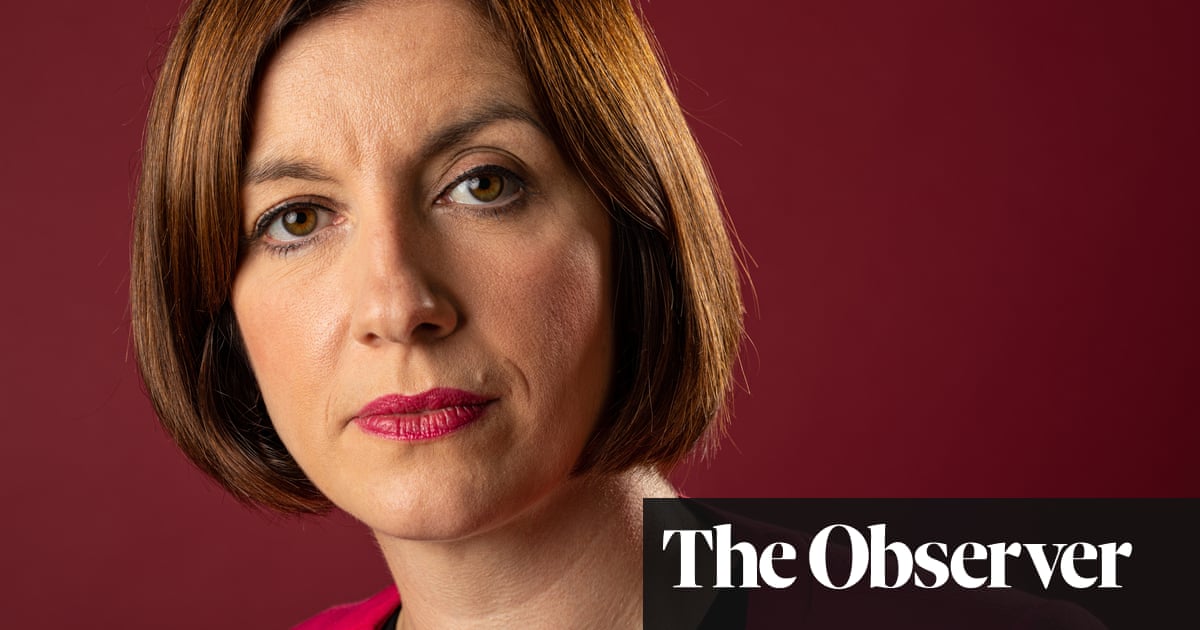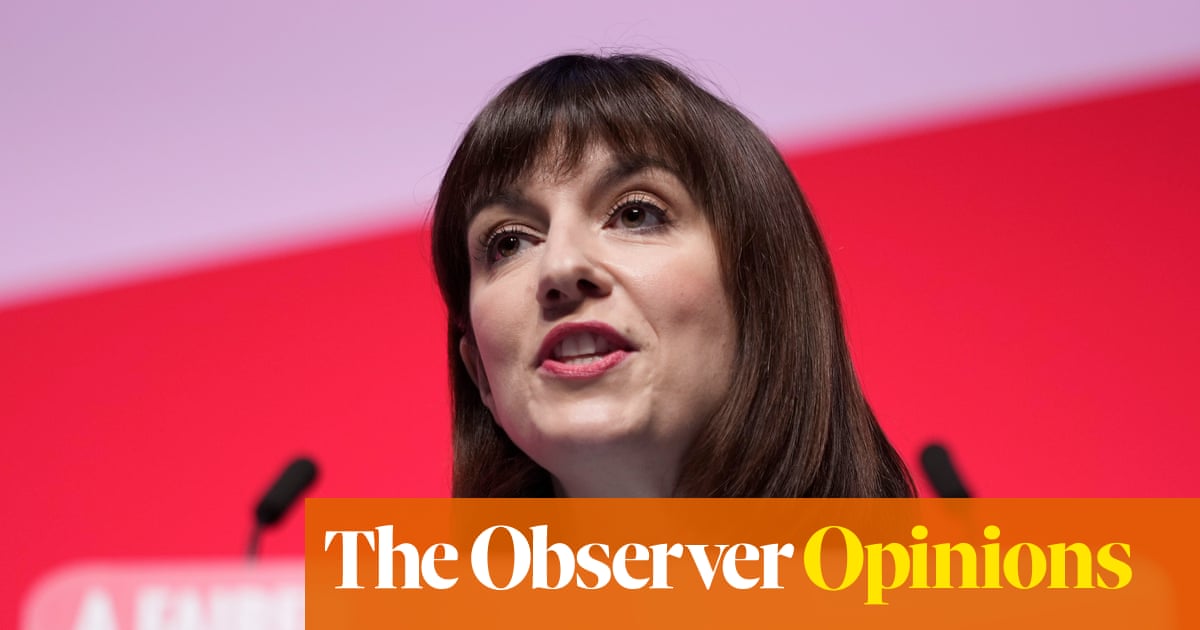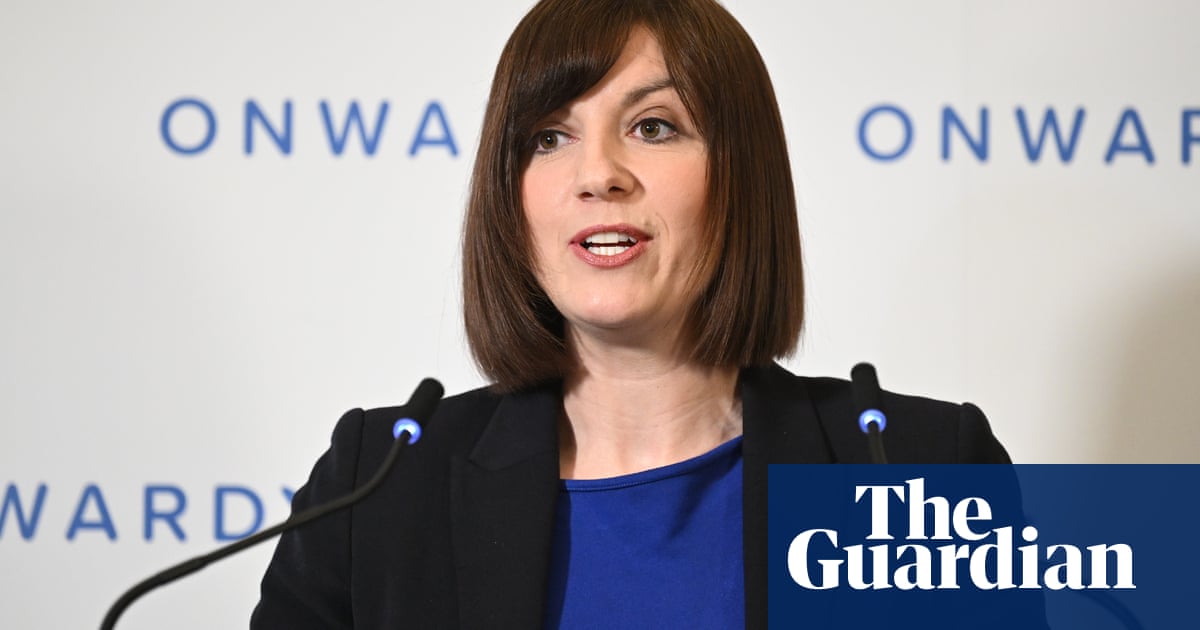
It is a Friday, a day of train strikes, so Bridget Phillipson cannot easily get back to her Houghton and Sunderland South constituency. Instead, the shadow secretary of state for education is in London being bombarded by media requests for comment on England’s crumbling schools.
The state of the country’s public services reminds her of her own upbringing in the north-east, in Washington, a former mining town between Sunderland and Newcastle in Tyne and Wear.
Now 39, she was raised by her mother in a small terrace council house with rotting window frames and no upstairs heating.
“I was at school under the last Tory government,” she says with passion. “I saw it first-hand, what happens when you have schools that are falling down, buckets collecting water, a total failure to invest in facilities.
“It feels like we face a similar challenge across our public realm, the fact that nothing seems to work in Britain any more, that our schools are literally crumbling, while the Tories have been content to sit back for years and years, focusing on petty internal squabbles rather than on our children’s education.”
Her views, and desire to change things, were clearly formed early and her resentment of the Tories runs deep. Despite being a shy child without many material advantages, she won through with flying colours, going on to study modern history at Oxford University and co-chair the university’s Labour club.
Now if, as expected, she stays in post during an imminent shadow cabinet reshuffle, she is on course to become education secretary within 18 months.
Phillipson has already done what Keir Starmer says he wants millions of other young people from working-class backgrounds to be empowered to do under a Labour government: she has shattered “the class ceiling”.
That is what now drives her. Like all of her shadow cabinet colleagues, Phillipson knows that if Labour wins the next election, money will be tight, far tighter than it was for New Labour in 1997.
“We will face enormous challenges, big fiscal constraints,” she says.
Dangerous school buildings are the current story and a huge worry, but they also give her a political opening a mile wide. The crisis is, she says, “a metaphor for 13 years of Tory government”.
It is also an issue Phillipson and her team have been monitoring closely for years, calling on ministers week in, week out to publish lists of those schools with classrooms, assembly halls, corridors or dining rooms that are at risk of crashing down on pupils, teachers and support staff. She says it is “incredible” that this information has been held back and believes the inevitable disruption and worry will affect the quality of education as well as raise safety concerns.
“You can’t expect children to get a first-class education in second-class schools,” she says.
One of the first acts of the Conservative government in 2010, she recalls, was when Michael Gove cancelled Labour’s big school rebuilding programme, as the coalition government introduced austerity across the board.
“They then failed to put in place a [replacement] national programme to rebuild schools. So now after 13 years the chickens are coming home to roost.”
Phillipson is demanding that ministers come to the House of Commons on Monday when MPs return from their summer break to explain what has been going on and what they will do next.
For her part, she is upbeat about how Labour can improve things in office, over time. It is a matter of different values as well as funds, she suggests. “I remember when the Labour government came in in 1997,” she says. It was around the time she joined the party in her mid-teens.
“It took time but we got there. As in 1997 it will fall again to a Labour government to deliver for our schools, our NHS, for the economy. We have to get the economy growing.
“The priority for any secretary of state for education has to be making sure that children can go to schools that are fit for purpose. But the challenge is more than that. It is to break down the barriers.”
Her vision seems to be to transform state schools into places that children want to attend, and are proud to do so, in which teachers want to teach, and in which parents have confidence and place their trust. “Places that are central to the community,” she adds.
She is worried about absenteeism among pupils, levels of which are higher in areas of the north of England, where GCSE and A-level results are less good. There is a clear connection. “We need children back in school. We are seeing a real problem with absenteeism.”
One big idea that is now firm policy is to bring in breakfast clubs for all pupils in all primary schools in England, as a priority and in a first Labour term. It will cost £365m a year, ensuring that children from poorer backgrounds can start the school day with a good meal.
“It is also that they will get a softer start to the day, time with their friends,” says Phillipson. It will be of educational benefit too, helping concentration and the ability to learn.
Other policies are coming together. There is no promise of a structural reform revolution, but rather of a change of focus and emphasis, and a belief that if state schools can improve social mobility, then everyone wins.
Under an inevitably cash-strapped Labour government, money will be found to pay for more teachers by ending tax breaks for private schools, a policy the Institute for Fiscal Studies says will raise about £1.6bn a year.
Problems with retention of teaching staff will be addressed by promising extra payments of £2,400 to those in the very early stages of their careers in England to try to stop them leaving.
Teachers, Phillipson suggests, are paid too little. “The facts speak for themselves. Under the Tories teachers have had a 13% real-terms pay cut,” she says. “I understand the way teachers feel about this government.”
She believes that the combination of a lack of investment in the last 13 years, Covid and the recent teachers’ strikes have all taken a toll on state education, as well as on the attitudes towards it.
Too many parents and young people now think that it does not matter if this generation of pupils misses a few more days because, as she puts it “they have already missed so much”.
It is the kind of thinking Phillipson wants to reverse. The danger, she suggests, is that the crisis over school buildings will make it all worse.
She sees her task as rebuilding in the broadest sense, to ensure that children from her kind of background get the best possible chance, and if at all possible more than one if at first they don’t succeed.
“It about showing that school matters,” she says, “that being at school matters, it is how you will you get to a better life. For a lot of young people, they have not got the grades they need, for a lot of working-class kids they only get one shot. That’s unfair.”












